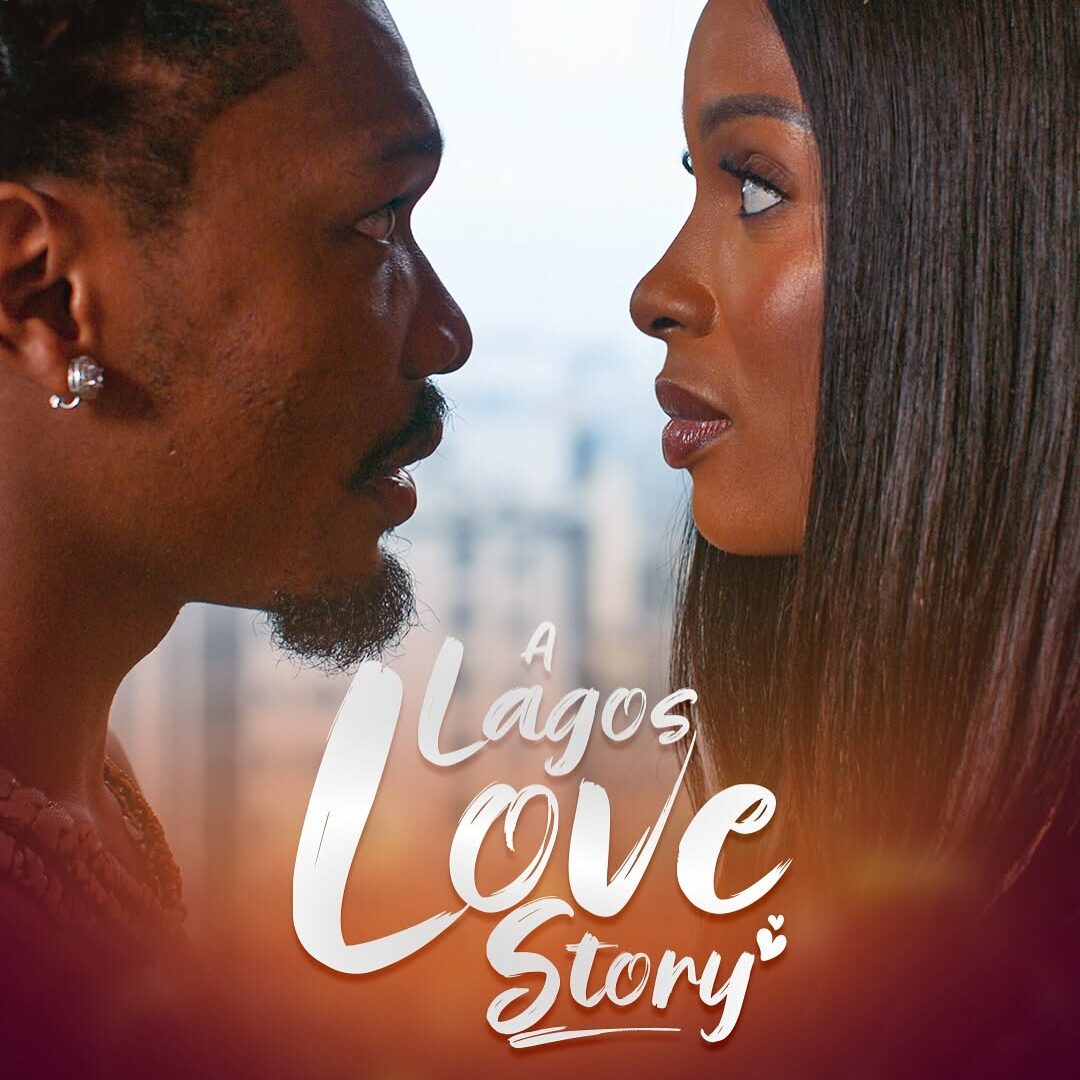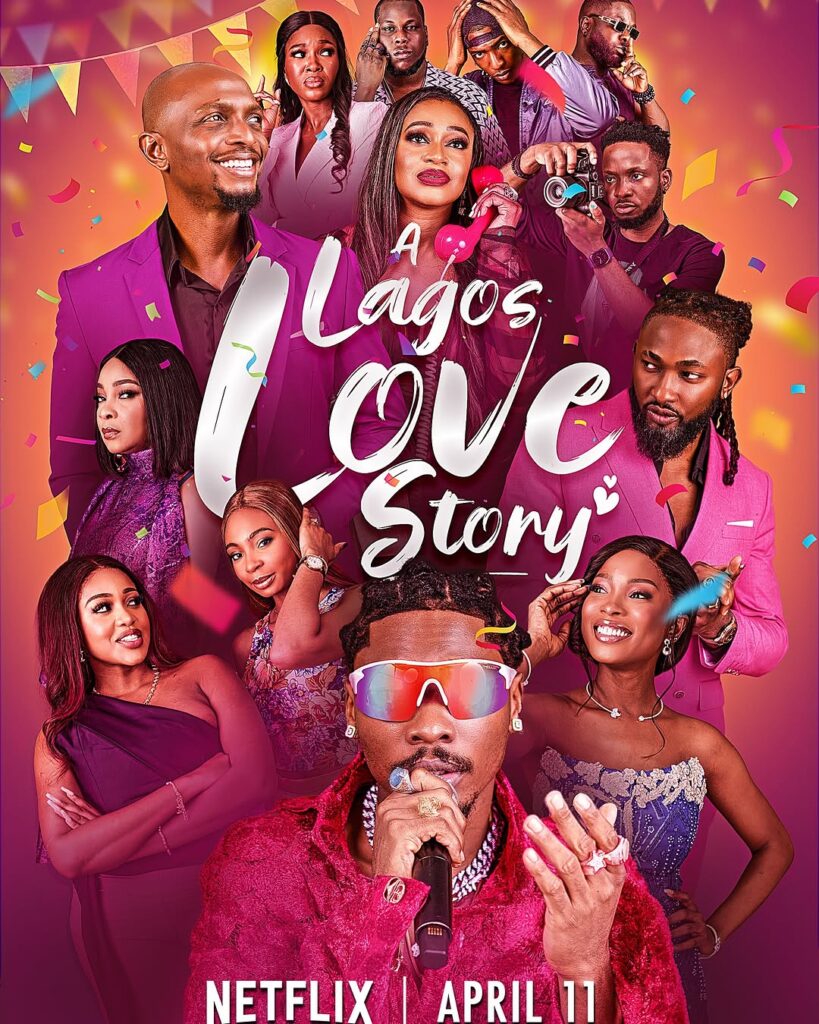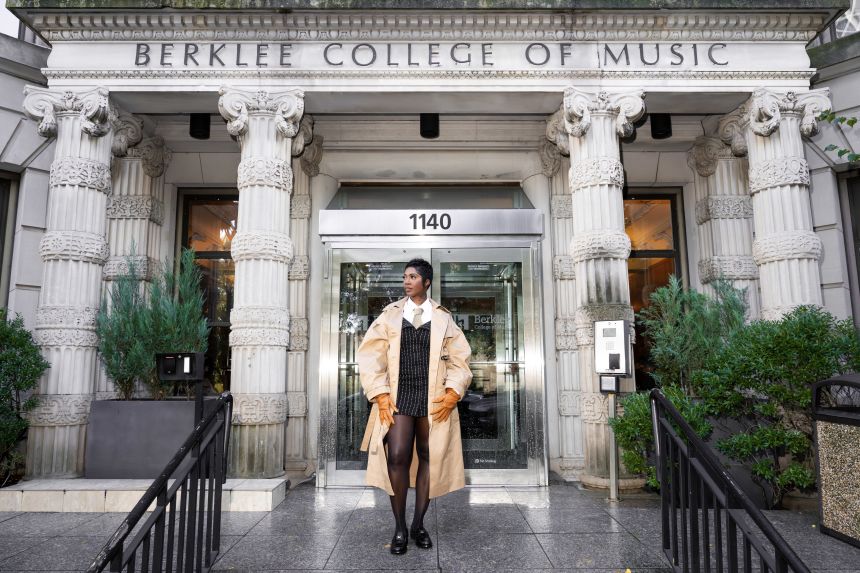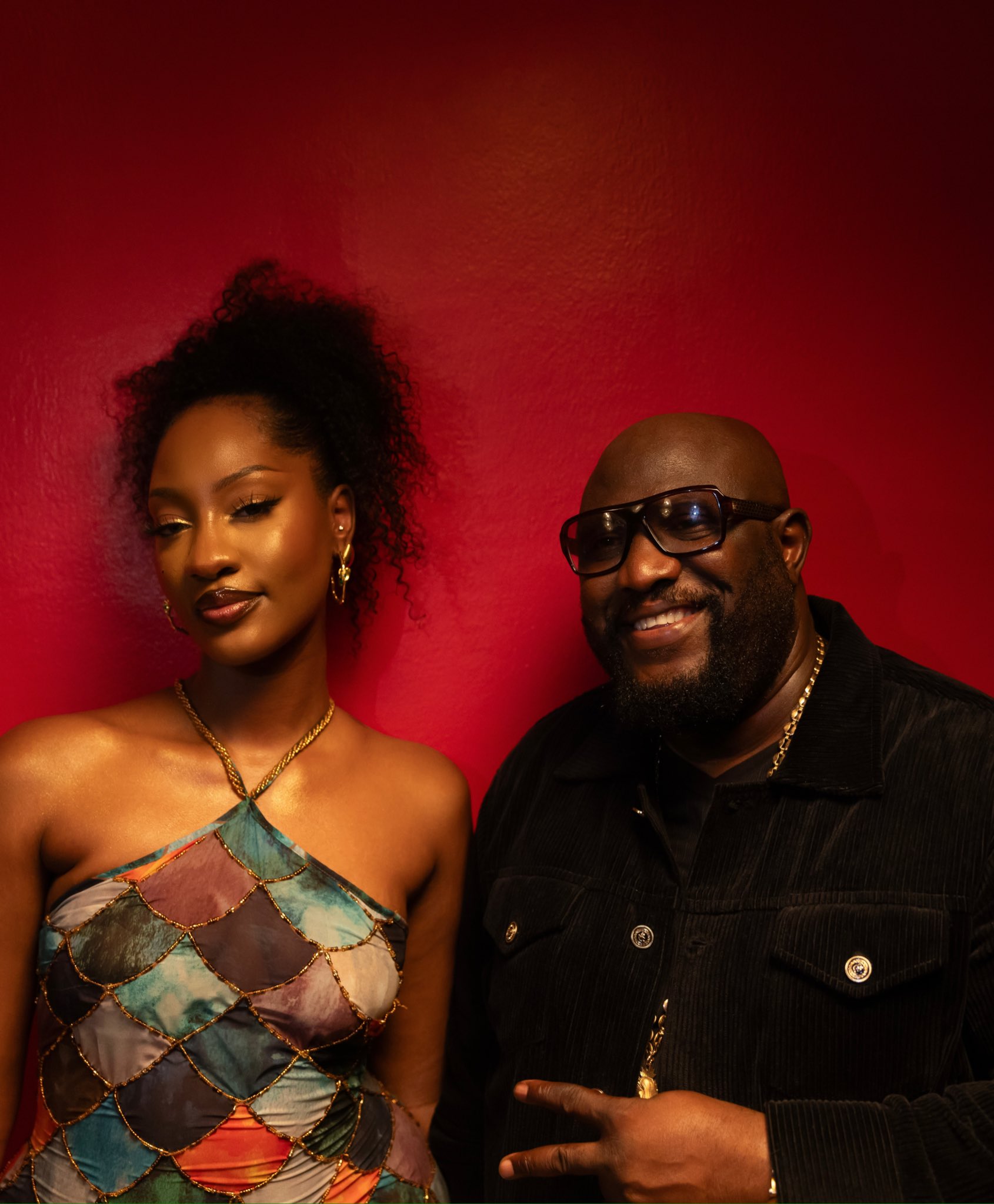Bomi Anifowose

There’s a specific kind of Nollywood movie that mistakes chaotic banter for chemistry, camera filters for direction, and Instagram aesthetics for actual storytelling. A Lagos Love Story is that movie, dripping with potential, oiled with hype, but ultimately slipping and falling face-first into the cringe it was desperately trying to avoid.
Let’s start with the meet-cute. Or better yet, let’s not. It’s the kind of scene that feels like it was written in a rush by a writer who typed “romantic sparks in Lagos” into ChatGPT and didn’t bother proofreading the output.
Jemima Osunde’s Promise, a supposedly seasoned festival planner, bumps into King Krator (Michael Afolarin), a brash Afrobeats star with all the emotional range of a teaspoon and the ego of a thousand-stage lights. Their connection? Immediate. Their dialogue? Artificial. Their chemistry? Forced, like a hug from a relative you owe money.
To be fair, the leads try. Jemima carries her role like a Lagos babe who’s seen things and is too tired to fight for nuance in a half-baked script. Michael Afolarin delivers his lines with the commitment of a man who knows he’s in a Netflix original and mustn’t fumble the bag.
There are moments, fleeting, fragile moments, where they almost convince us of their emotional connection. But the script undercuts them at every turn with dialogue that sounds like it was recycled from Tumblr quotes and WhatsApp broadcasts about “soft love.”
And then there’s the supporting cast. If vibes could act, half the crew would be Oscar nominees. Alas, charisma alone does not a performance make. Most of the ensemble feels like they wandered in from different auditions. The one shining exception is Uti Nwachukwu, who clearly understood the assignment and decided to add seasoning where others brought salt. He gives us poise, comic timing, and presence. He’s not just acting, he’s playing chess while others are playing Ludo.

Official Poster for A Lagos Love Story
Now to the biggest fantasy of all: Krator, the supposed Afrobeats “global superstar” with the stage presence of an open mic regular and songs that sound like leaked voice notes from a failed EP. The movie tries to sell him as the next global Lagos export, touring abroad, selling out shows, moving like a cross between Asake’s aesthetic and Shallipopi’s adlibs, but forgets to give him music that actually bangs.
There’s no universe, fictional multiverse or otherwise, where that man’s God-awful catalogue is moving tickets in London, Atlanta, or even Surulere. The music scenes feel like someone typed “Afrobeats concert” into Pinterest and just added LED lights and fog machines. It’s laughable, no, it’s insulting, to our ears, our playlists, and the actual artistes grinding in real life.
Visually, the film is giving “Lagos is the main character,” and while that works for tourism reels, it doesn’t quite land in a narrative that’s begging for emotional depth. We’re fed a diet of pretty shots and wardrobe choices that scream “Gen Z soft life,” but there’s no real substance underneath. The plot wants to tackle fame, trauma, vulnerability, and modern love, but ends up throwing everything into a blender and hitting pulse.
By the end, you’re not angry. Just exhausted. Because A Lagos Love Story had all the tools, a strong cast, a rich setting, a Netflix budget, but it decided to lean into tropes instead of tension, fluff instead of feeling. It wanted to be Lagos’ answer to The Photograph or Notting Hill but ended up somewhere between a YouTube series and an underfunded TikTok rom-com.
In the end, it’s not the cringe that kills it, it’s the effortful cringe. The kind that tries to convince you it’s profound when it’s barely saying anything at all.
You can catch A Lagos Love Story Exclusively on NETFLIX




